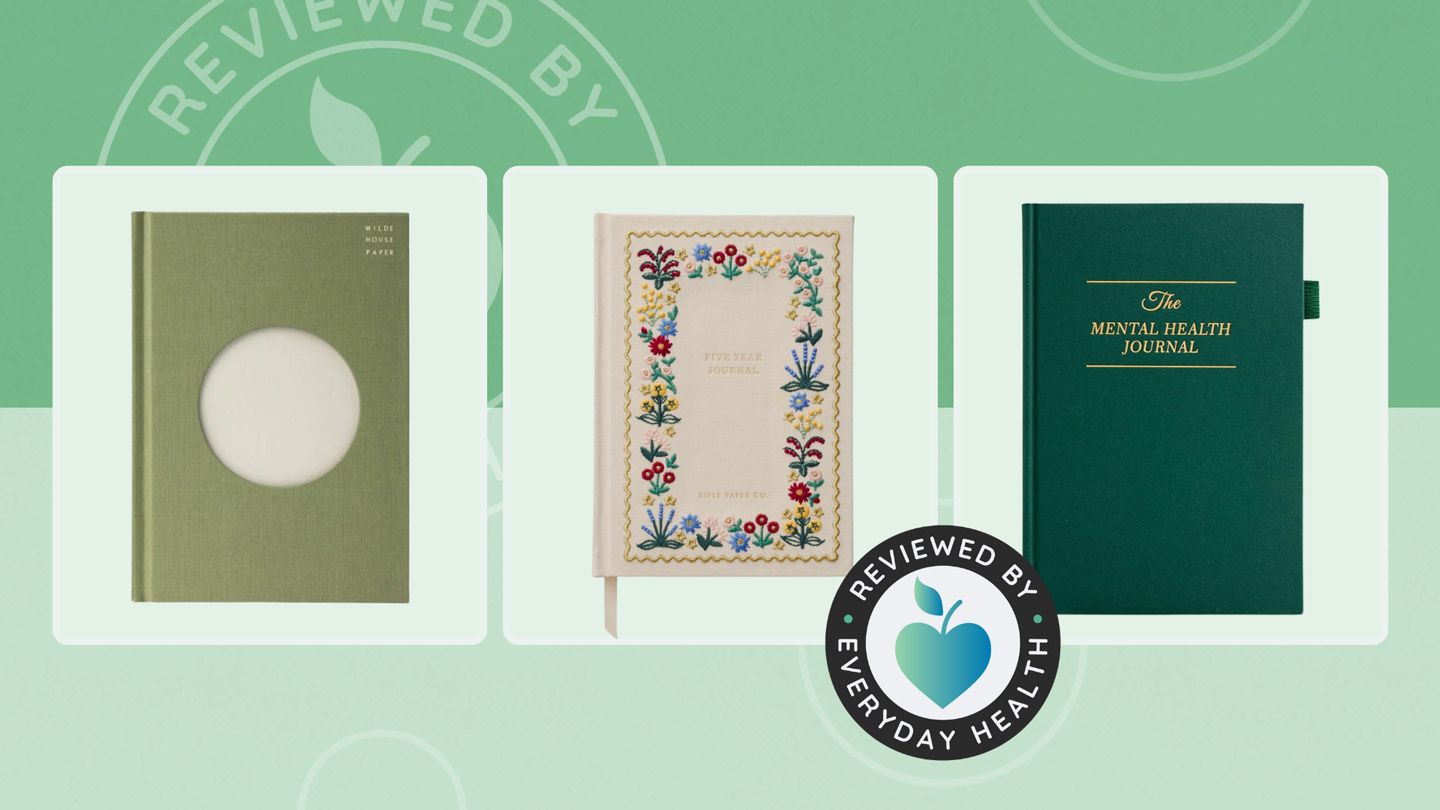Discover Self-Awareness How Journaling Transforms Your Personal Journey

Unlocking Personal Growth Through Creative Expression
In a fast-paced world where self-reflection often takes a backseat, journaling emerges as a powerful tool for self-awareness. This creative hobby offers individuals a unique outlet to explore their thoughts and emotions while fostering personal development. By putting pen to paper, one can gain insights into their inner self, leading to profound transformations.
The Benefits of Journaling
Engaging in journaling can provide numerous benefits, such as:
- Enhanced Emotional Clarity: Writing down feelings can clarify thoughts and reduce anxiety.
- Boosted Creativity: Regular writing encourages innovative thinking.
- Improved Problem Solving: Putting problems in writing helps facilitate new perspectives.
- Tracking Personal Development: Journals serve as records of growth and change over time.
- Increased Mindfulness: Reflective writing promotes living in the moment.
As you embark on this enlightening journey, prepare to explore the Top 5 Ways Journaling Can Transform Your Life. This guide promises to reveal practical tips and inspire you to embrace journaling as a creative hobby that enhances self-awareness and personal growth.
DISCOVER MORE: Click here for exciting photography projects
Top 5 Reasons to Journal for Self-Discovery: How Journaling Can Transform Your Personal Journey
In today’s fast-paced and often overwhelming world, finding a moment for self-reflection seems like an impossible task. This is where journaling, or the practice of keeping a personal diary, emerges as an invaluable tool. But how can regular writing enhance self-awareness and personal growth? As we delve into the top five reasons why journaling can be a transformative experience, you’ll discover its potential to radically change how you perceive and navigate your life. Whether you’re an experienced writer or just getting started, the benefits of journaling are both vast and profound.

5. Emotional Release: A Safe Space to Vent
Journaling acts as an essential outlet for written expression and emotional release. In a world filled with constant stimulation and stress, finding a secure and private sanctuary to express oneself is crucial. Writing down emotions can provide an unrestricted avenue for voicing frustrations, joys, and worries without the fear of judgment. This emotional catharsis is often followed by a sense of relief and a greater mental clarity.
Research has shown that expressive writing can reduce symptoms of anxiety and stress. By articulating emotions on paper, individuals may gain insights into their triggers and learn how to manage them. This emotional clarity often translates into improved mental health and well-being, reducing stress and allowing individuals to process complex feelings more effectively.
4. Clarity and Focus: Establishing Goals
One of the compelling advantages of journaling is its ability to provide clarity and focus. In the hustle and bustle of everyday life, it’s easy to lose sight of what truly matters. Journaling offers a structured space to channel thoughts and aspirations. When you take the time to write about your goals, dreams, and intentions, you clarify what you want to achieve.
Goal-setting through journaling not only makes objectives more tangible but also encourages accountability. By documenting your progress and occasionally reassessing your milestones, you’re better positioned to stay on track. Revisiting these entries allows you to witness your growth and adaptability, and adjust goals as needed.
3. Enhanced Creativity: Unlocking the Imagination
The regular practice of journaling is known to significantly boost creativity. Many celebrated authors and artists have maintained journals to navigate creative blocks and stimulate innovation. When you allow free-flowing thoughts and uninhibited expression in your writing, you permit your imagination to flourish.
Journals can house sketches, story ideas, and stream-of-consciousness writing—an open-ended playground for creativity. This form of expressive writing can also serve as a therapeutic exercise, where individuals explore different facets of their identity. By nurturing creativity, you unearth new perspectives, which can enhance personal and professional life.
2. Reflection and Growth: Tracing Your Journey
Journaling’s power lies in its ability for self-reflection and personal growth. By revisiting past entries, individuals gain insight into how their thoughts and behaviors evolve over time. This temporal record acts as a mirror to your internal world, illuminating changes in perspective and attitude.
Reflection through journaling enables the identification of patterns and habits that might require change. It provides a platform for recognizing achievements and milestones, which fosters a gratitude mindset. Whether confronting fears or celebrating successes, regular reflection enriches self-understanding, promoting an authentic life path.
1. Self-Discovery: Building Self-Awareness
At the core of journaling’s benefits is the profound journey of self-discovery. Engaging in written dialogues with oneself invites a deeper contemplation of personal values, beliefs, and motivations. This introspective practice becomes a guiding compass, uncovering aspects of your personality that may not be apparent in the confines of routine life.
This form of inquiry sharpens self-awareness, which is a cornerstone for personal growth and happiness. By understanding who you are at a deeper level, you become equipped to navigate life’s challenges with confidence and resilience. As the journaling habit takes root, you gain an acute awareness of strengths and areas ripe for development, enabling the pursuit of a purposeful and fulfilling life.
In conclusion, journaling is not merely an act of putting words on a page; it is an expedition to profound self-awareness and personal development. From emotional release to self-discovery, each element of journaling contributes significantly to the journey of understanding oneself better. If you haven’t yet started a journal, consider integrating this transformative practice into your daily routine. It promises an enriching, enlightening, and life-altering experience, all achieved with nothing more than a pen and paper.
Journaling, as a practice of self-reflection and expression, offers unique avenues for personal growth that can be both enlightening and transformative. The act of putting pen to paper allows individuals to unravel thoughts that may be tangled within the mind, facilitating a clearer understanding of emotional states and underlying motivations. Here are critical aspects to explore when considering the impact journaling can have on self-awareness and personal development.Firstly, journaling promotes emotional processing. Every emotion we experience holds significance and meaning. By writing about these feelings, whether joy, anger, or sadness, individuals can explore the reasons behind such emotions. This exploration helps in validating feelings, which is often the first step in managing them constructively. It invites the opportunity for catharsis, allowing unresolved feelings to surface and be addressed rather than suppressed.Secondly, it enhances decision-making skills. When faced with significant life choices, journaling can serve as a powerful tool. By detailing the pros and cons, expressing fears and hopes, and reflecting on past experiences, it assists individuals in viewing situations from different angles. This clarity generated through writing allows for informed choices and the potential to anticipate future outcomes more accurately.Moreover, journaling enhances mindfulness. Engaging in the practice encourages individuals to slow down and be present in the moment. By reflecting on daily experiences or significant life events, one develops a heightened awareness of thoughts and feelings as they occur. This ability to maintain mindfulness fosters a better understanding of oneself as well as how one interacts with others. It allows for a richer appreciation of life’s nuances – from mundane daily tasks to profound personal challenges.Additionally, journaling serves as a permanent record of personal evolution. Reviewing past entries can demonstrate progress by highlighting changes in thoughts, beliefs, and attitudes over time. It becomes evident how past experiences have shaped current self-perceptions, providing insights into personal growth. This reflection can be motivating, revealing strengths and new pathways in one’s journey.Finally, it opens a gateway for creativity. The page becomes a blank canvas for ideas, dreams, and aspirations that may have felt too intimidating to express verbally. Exploring creativity through journaling aids in breaking barriers and encourages the freedom to express oneself without judgment. It nurtures innovative thinking, allowing individuals to tap into their innate creativity which may influence various aspects of their personal and professional lives.Journaling is not simply an activity; it is a vital practice that can serve as a resourceful tool on the journey of self-discovery. By engaging regularly with this form of introspection, individuals can discover profound insights about themselves, thus enriching their lives in multifaceted ways. Each entry becomes a stepping stone toward a more authentic and fulfilling existence.
DIVE DEEPER: Click here for expert tips on crafting comic book characters
Frequently Asked Questions About Journaling for Self-Discovery
What is journaling and how can it contribute to self-discovery?
Journaling is a personal writing practice where individuals regularly express their thoughts, feelings, and experiences. It serves as a reflective process that aids in self-discovery by allowing you to explore your inner world without judgment. Through the act of writing, you can gain insights into your behaviors and emotions, fostering a deeper understanding of who you are. Many find that journaling provides a space for exploration, unveiling patterns in their thoughts and actions that may not be apparent otherwise. This process can lead to significant personal growth and self-awareness.
How often should I journal to gain the most benefits?
The frequency of journaling can vary greatly depending on individual preferences and goals. Some people find daily journaling to be most beneficial, as it keeps them consistently engaged with their thoughts and emotions. Others might prefer to journal weekly, which can still provide profound insights and growth, albeit at a different pace. The key is consistency rather than frequency. Regular journaling, whether it’s daily or weekly, can significantly enhance the benefits of the practice.
Do I need any special tools or techniques to start journaling?
Starting a journaling practice does not require any special tools. Many people begin with a simple notebook and pen or choose digital options like journaling apps and word processors. The most important aspect is to find a medium that you feel comfortable with, as this encourages regular use. While you can explore various techniques such as gratitude journals, dream journals, or guided prompts, the key is to find a style that resonates with you. The flexibility in approaches allows you to tailor the practice to your unique journey of self-discovery.
Can journaling help with anxiety and stress management?
Yes, journaling can be a powerful tool for anxiety and stress management. It provides a safe space to express and process difficult emotions, which can help in alleviating mental pressure. Writing about stressors can help in organizing thoughts and clearing the mind, potentially reducing the overwhelming nature of anxiety. Many practitioners find that journaling helps them identify triggers, explore coping mechanisms, and monitor their progress over time. Studies suggest that regular journaling can lead to a reduction in stress levels and an improvement in overall mental health.
How does journaling compare to other self-help practices?
Journaling is unique in that it provides a personal and introspective way of engaging with one’s thoughts. While other self-help practices like meditation, therapy, or exercise require specific settings or guidance, journaling is entirely self-directed and can be done anywhere, at any time. This flexibility makes it accessible to many. Additionally, journaling complements other practices, as it can be used to reinforce insights gained from therapy or meditative reflections. Its adaptability and compatibility with other methods of self-care enhance its effectiveness as a tool for personal development.
DISCOVER MORE: Click here to enhance your creative discipline
Conclusion: Unveiling the Power of Journaling for Personal Growth
As we journey through the intricate tapestry of personal exploration, the practice of journaling stands as a profound beacon of discovery. Throughout this article, we’ve unpacked the myriad ways that writing for self-knowledge can transform one’s personal journey, emphasizing its role as a creative hobby that not only fosters introspection but also encourages tangible growth.
Engaging with journaling allows individuals to delve into their innermost thoughts, unshackling hidden emotions and fostering a clearer understanding of one’s desires and motivations. Its unstructured nature offers a sanctuary for candid self-reflection, free from judgment, which is essential for nurturing self-awareness.
- By documenting daily experiences, writers can identify patterns in behavior and thought processes.
- Journaling can enhance emotional intelligence, strengthening the ability to empathize and connect with others.
- Through regular writing, individuals can map out their goals and track progress, providing a structured path toward achieving aspirations.
- Creative expression through journaling can alleviate stress and serve as a therapeutic release.
- This hobby reinforces the notion that personal growth is an ongoing, evolving journey.
In summary, journaling for self-discovery is not merely an exercise in writing but a robust tool for transformation that taps into the wellspring of human experience. It is a gateway to understanding and embracing one’s authentic self, reshaping perceptions, and laying the groundwork for a more fulfilling life. As a creative hobby, it invites individuals to explore new realms of consciousness, fostering a deeper connection with their inner world. For those seeking to embark on this enriching open-ended voyage, the written word promises endless opportunities for innovation, reflection, and growth.



